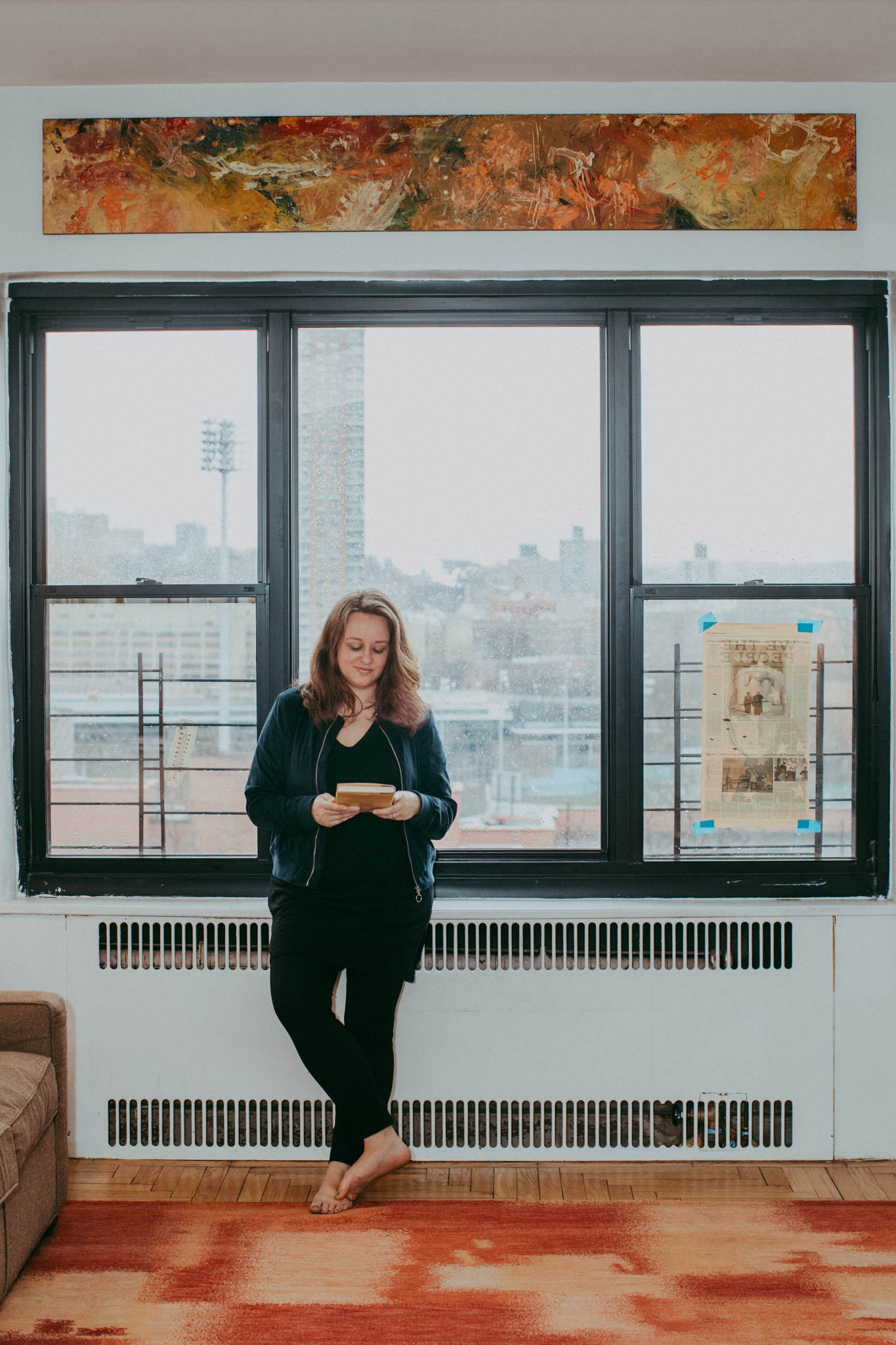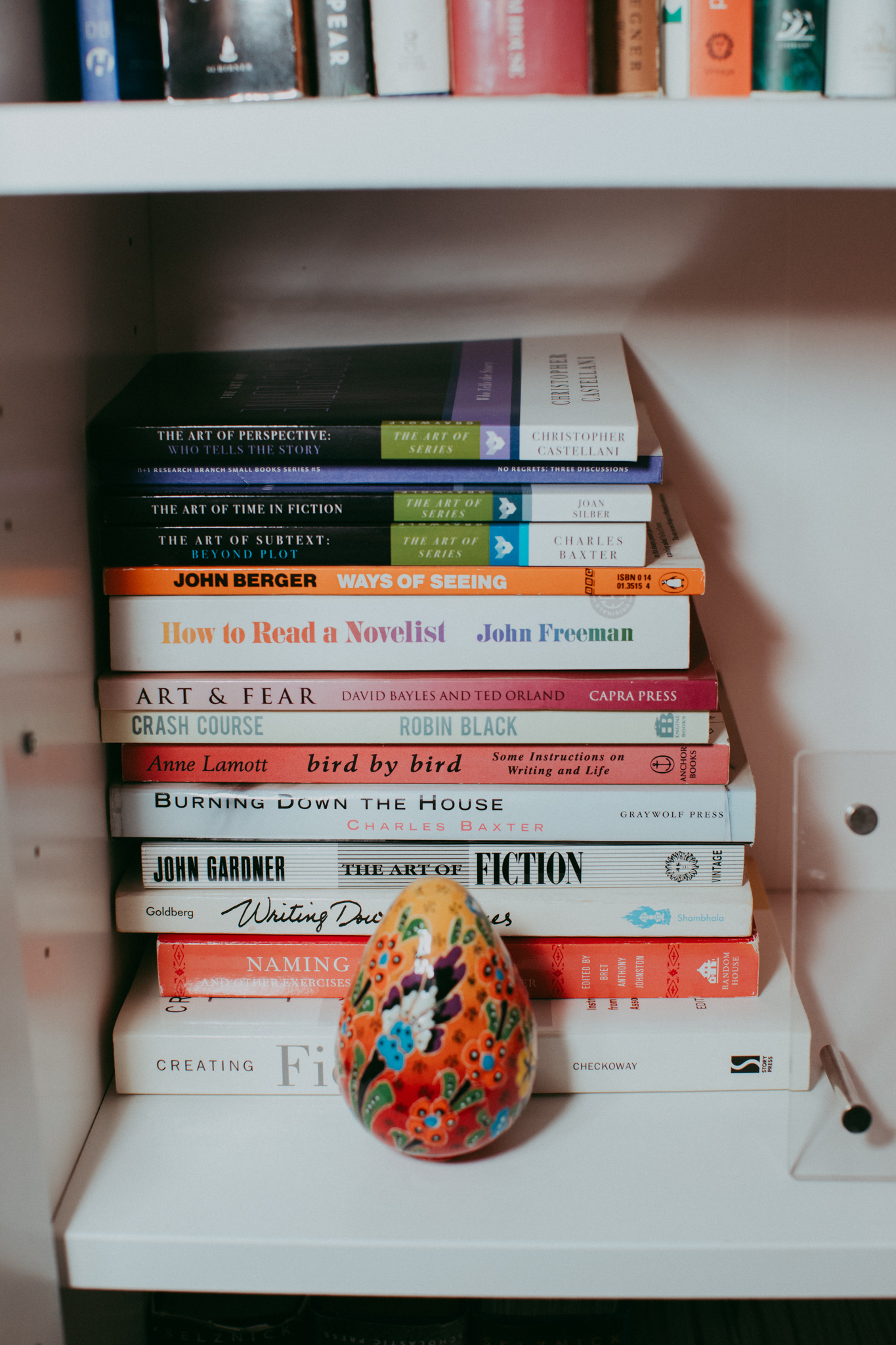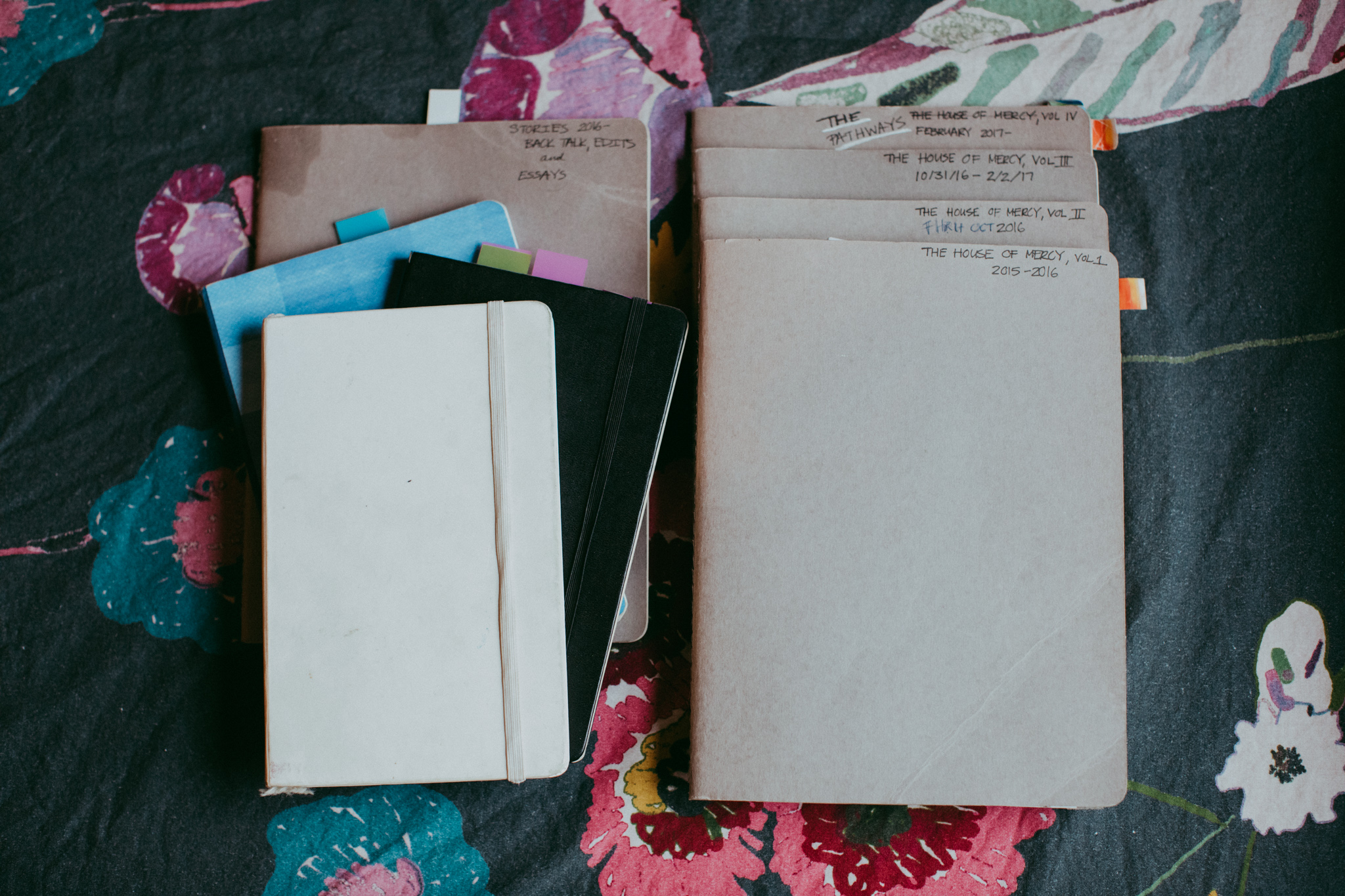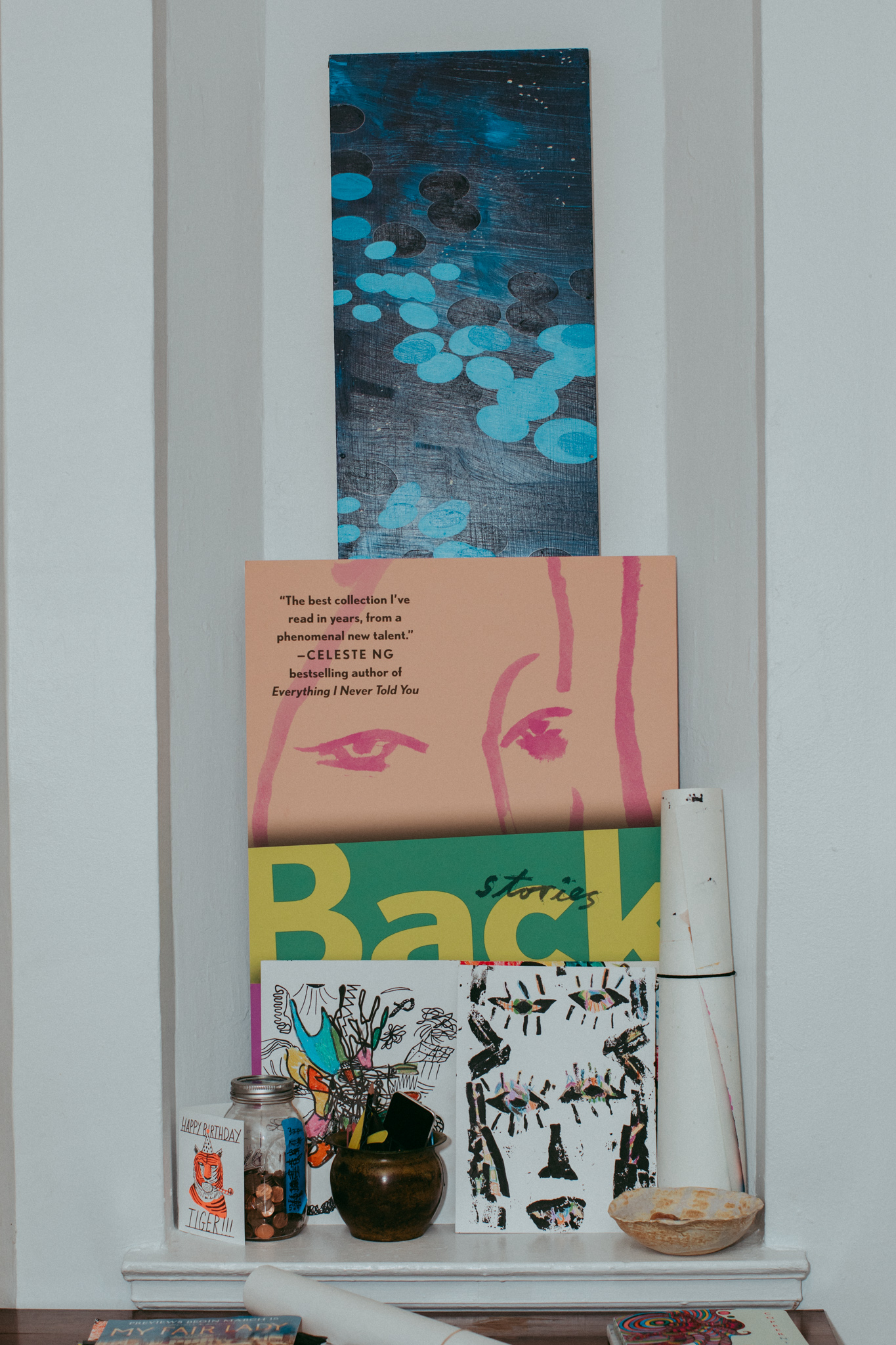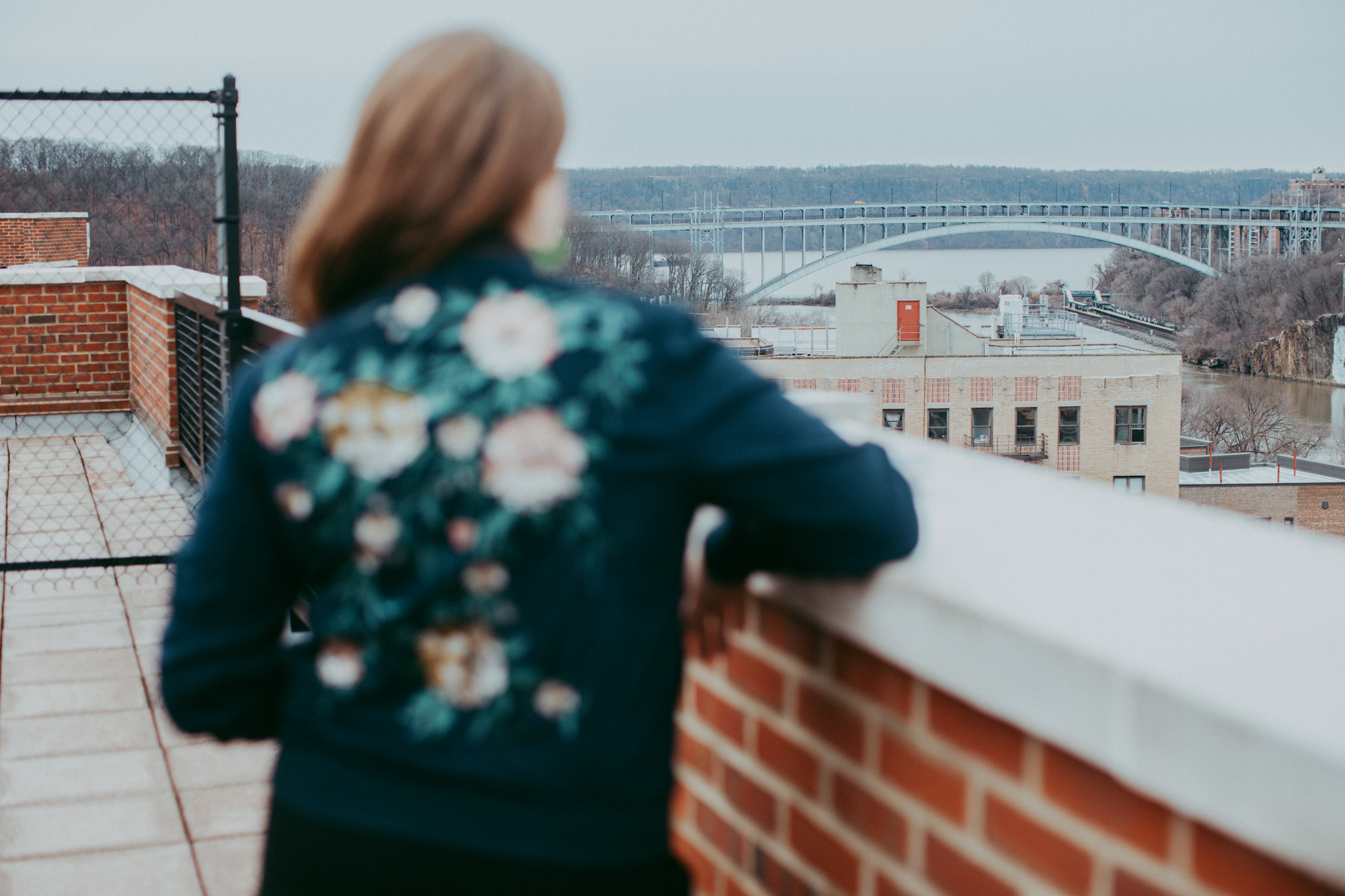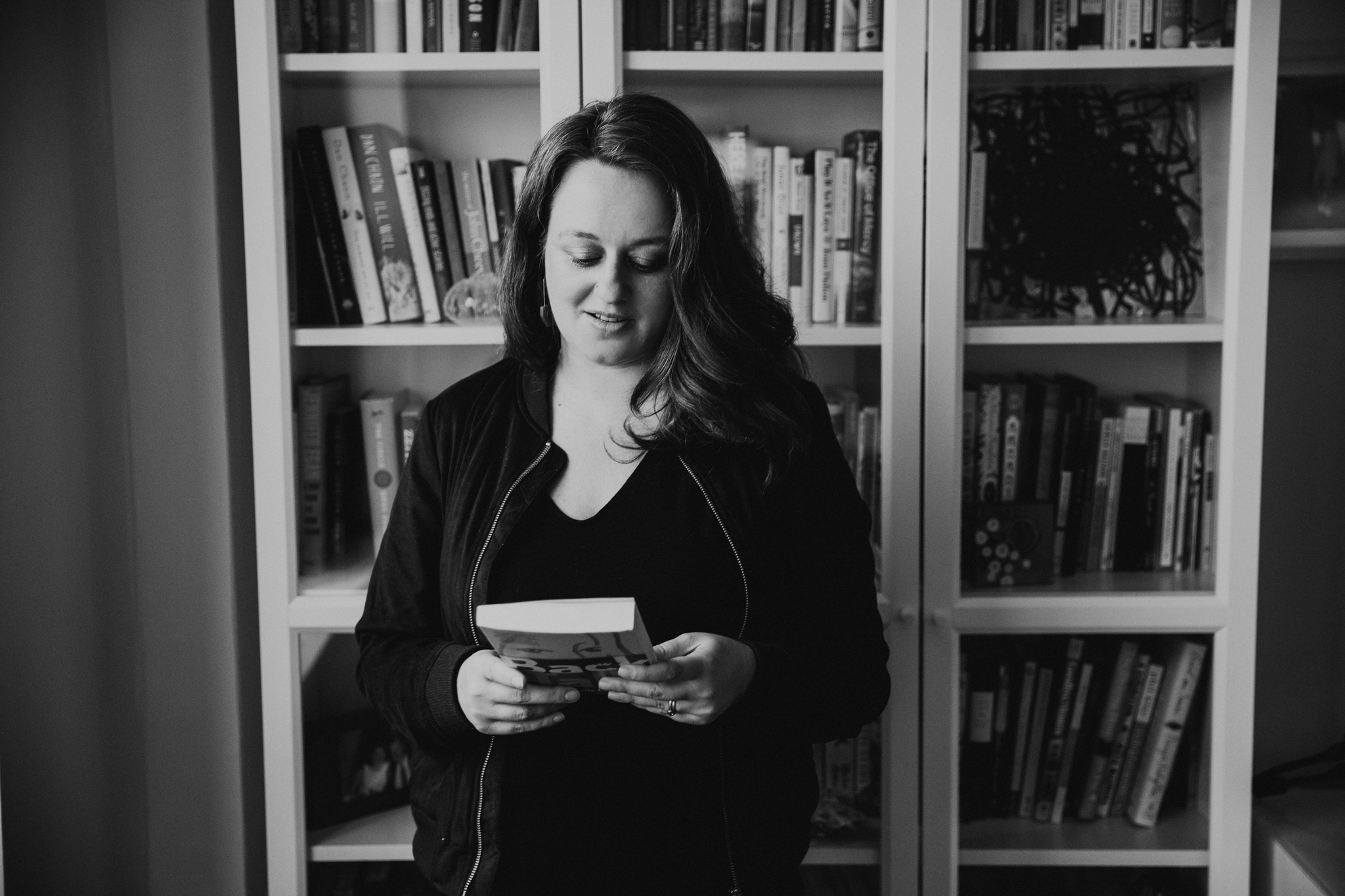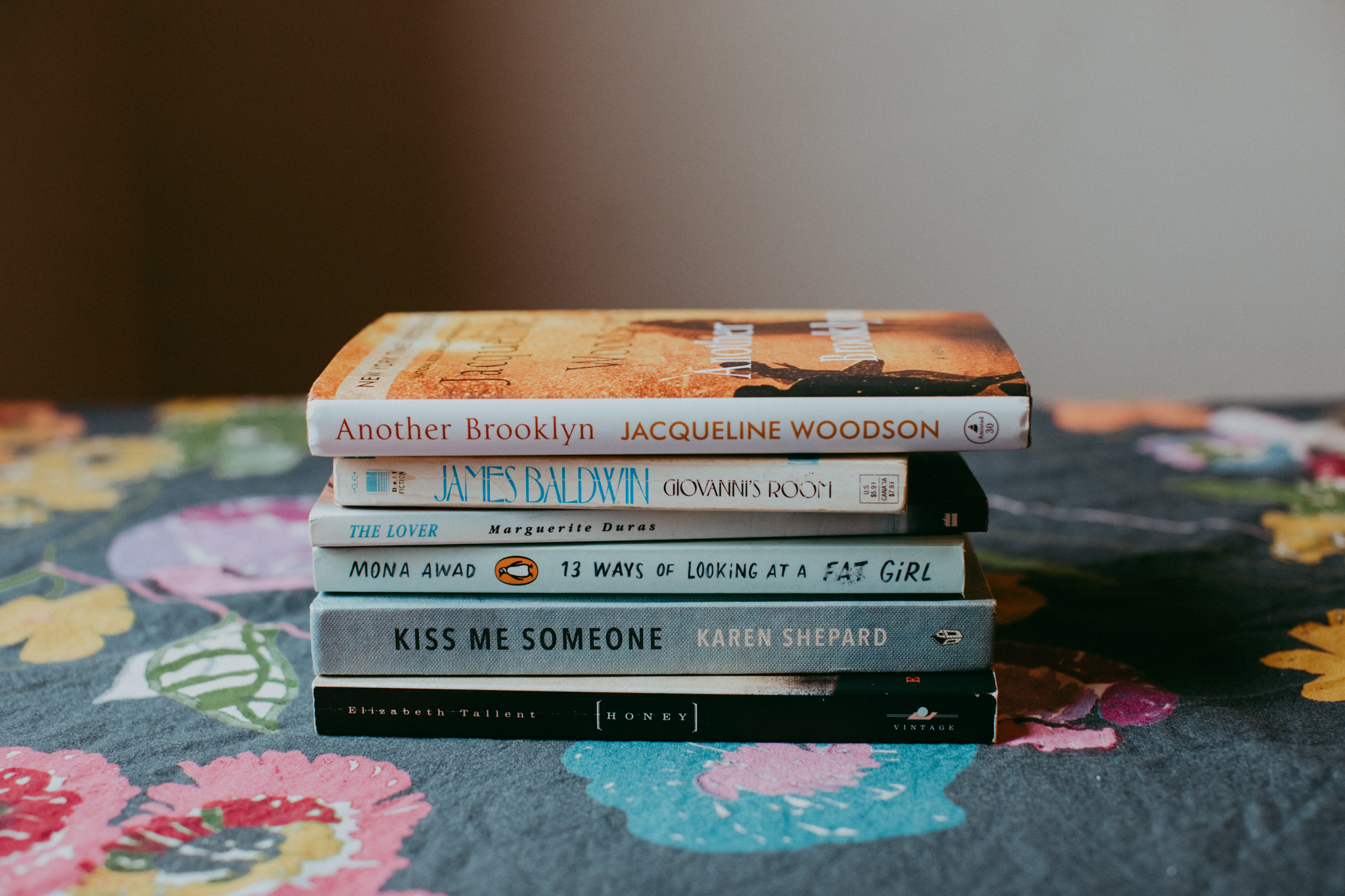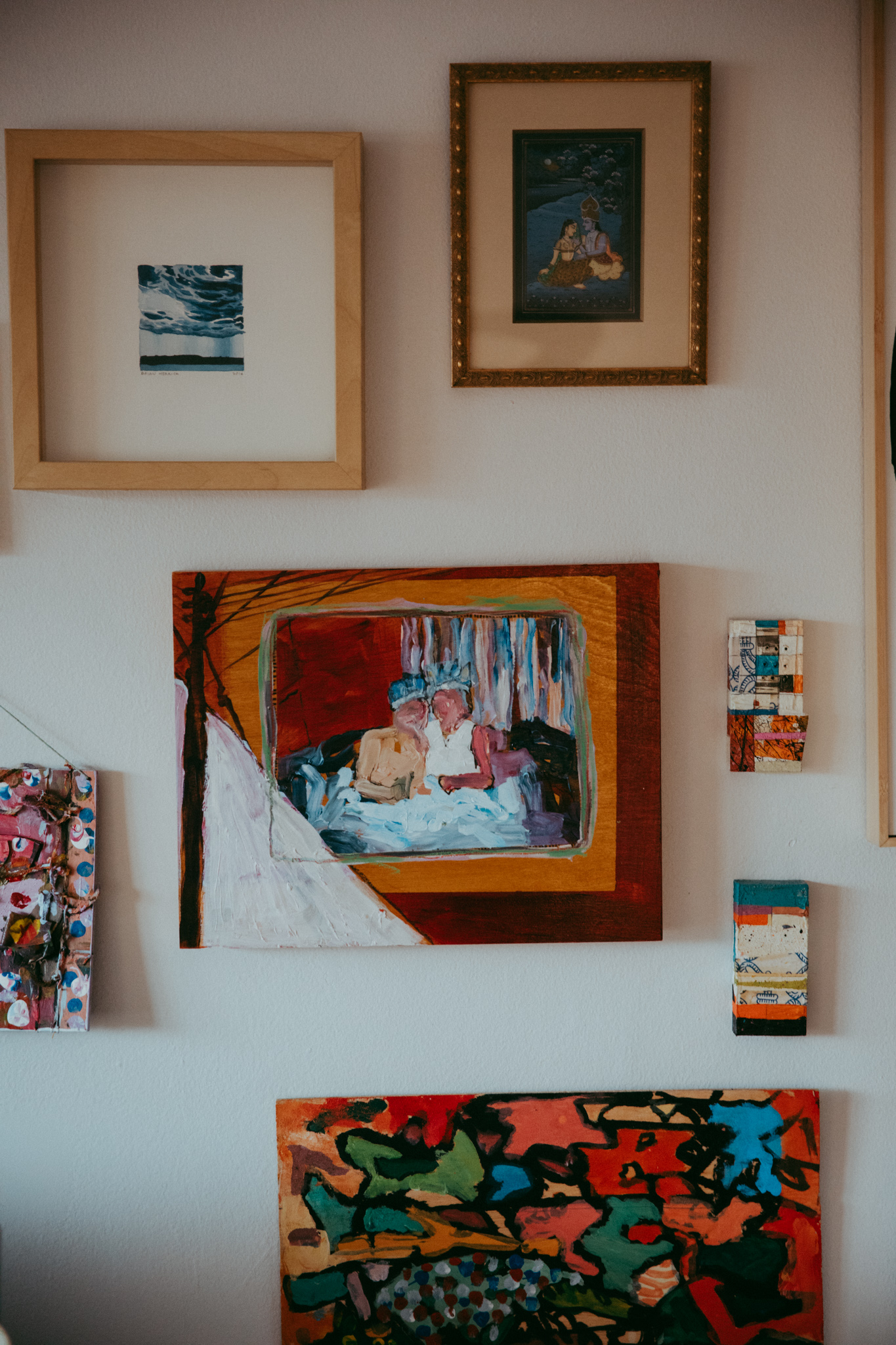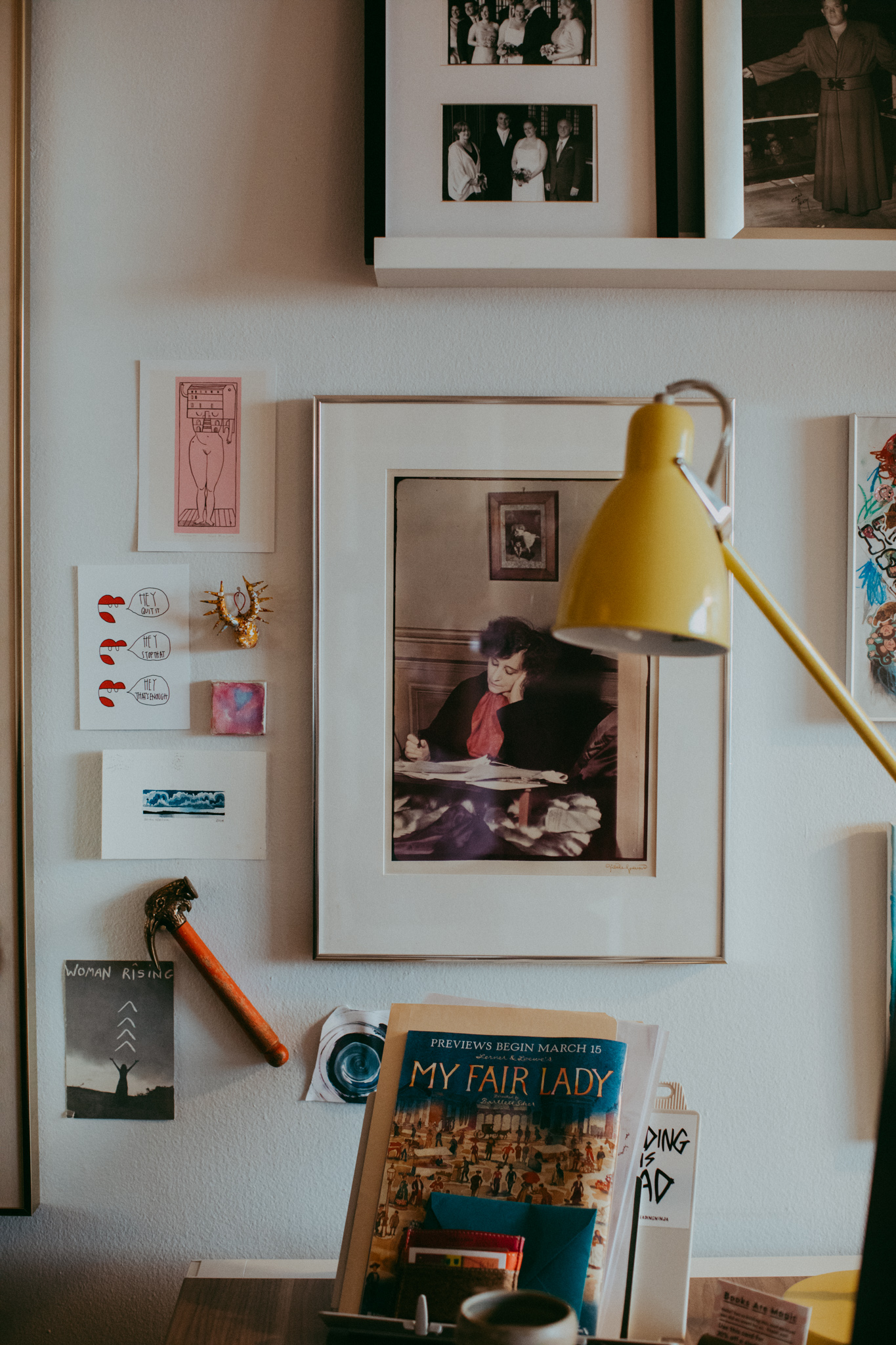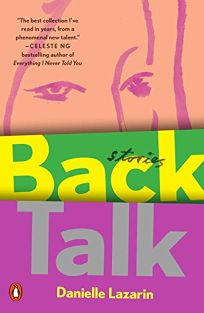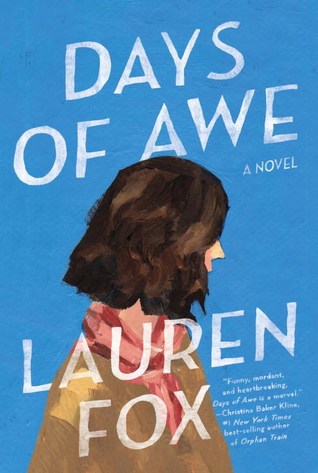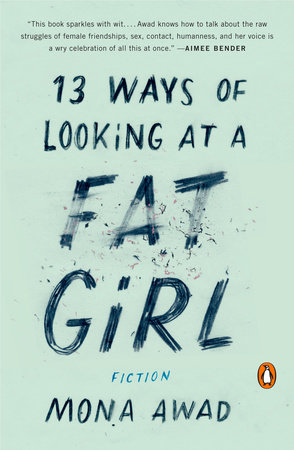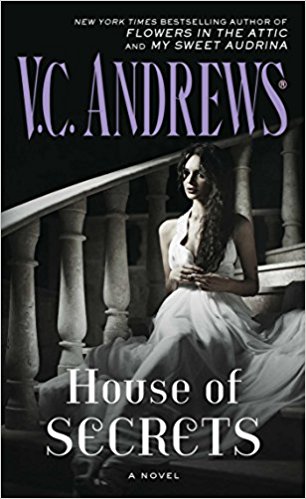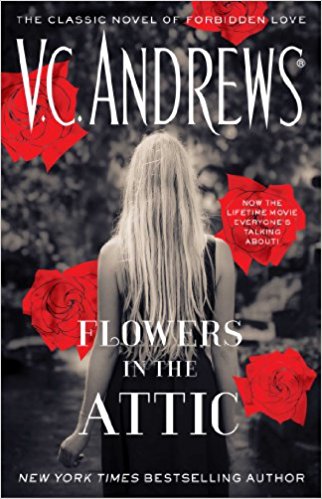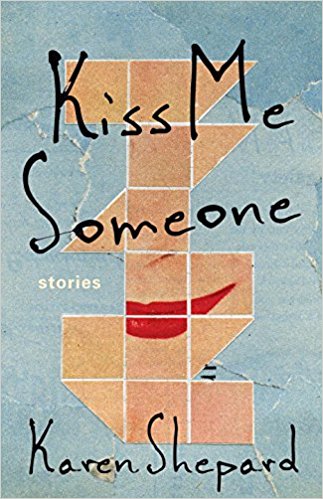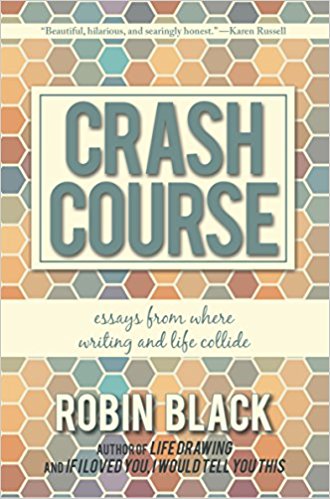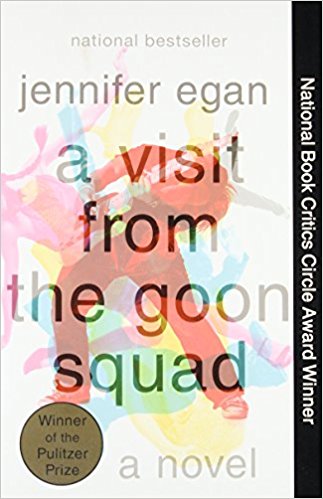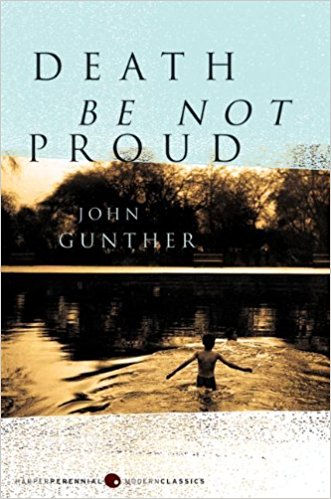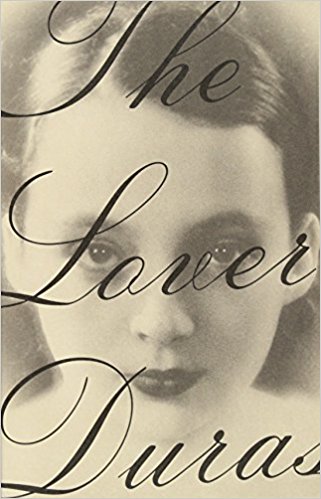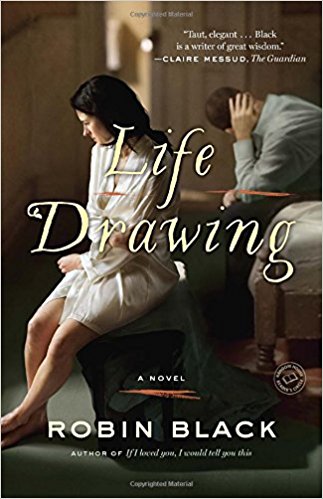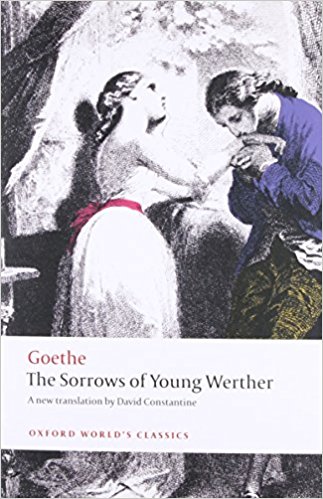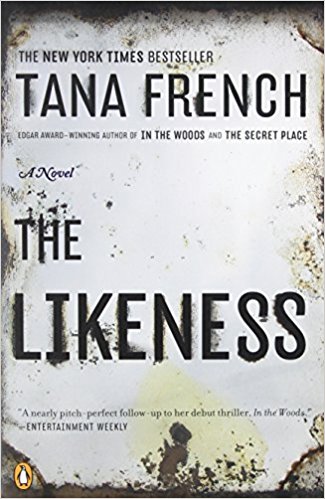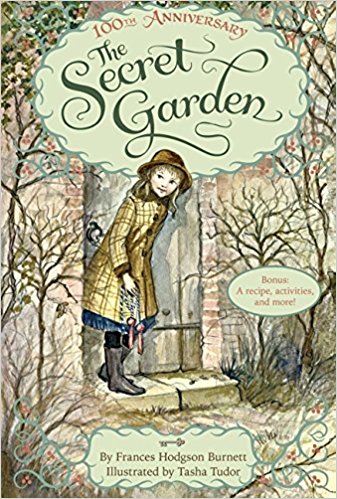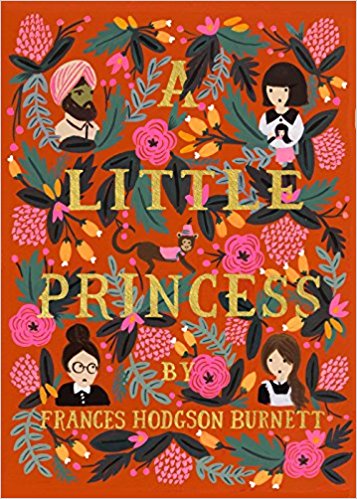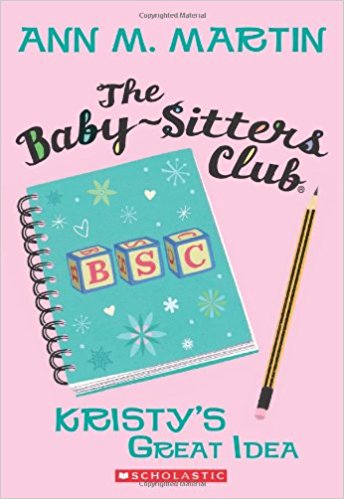
Danielle Lazarin
Danielle Lazarin is a writer living in New York City with her husband, daughters, and anxious dog. Her debut collection of short stories, Back Talk, was published this past February by Penguin. Join GAL as we discuss Danielle's literary influences, inspiration, and process.
Photography by Sylvie Rosokoff
Girls at Library: Where do you find inspiration for your writing?
Danielle Lazarin: I find a lot of inspiration in New York. I grew up in New York. I specifically wrote Back Talk in pieces: half before I moved home, half when I moved back to New York. I just had this funny kind of sensory experience where I would be in these places that I was as a child and a teenager and it just triggered all these memories and feelings that I wanted to return to, so I wrote a whole rush of stories after that. I grew up in Riverdale, which is, like, the top of the one train, and now I'm at the top of the "A". I've moved up in the world. [Laughs] I take really long subway rides and I find myself taking a lot of notes on the subway, which is a weird place to write but I think it's a meditative place for me. I know a lot of people find being on a crowded subway to be a nightmare, but I find it really comforting, and it feels like home to me in all its close disgustingness.
GAL: You talk about Paris in your short stories. When were you there? How did it inspire your work?
DL: I spent my freshman year at the American University of Paris. That's where all those miserable Paris stories come from. Not that all of it was terrible. I kept chocolate in my underwear drawer as one does, and as a walker, I loved that city. I was pretty miserable, I mean, for an 18-year-old. Now, being much older, I'm like, "It was fine." I thought I would be able to just make do because I was a city kid. I was very lonely. All my friends were either hardcore party people, or didn't touch anything, and as a person, I was in the middle, and it was just really, like, I didn't know...which I think is very common to being that age, I just didn't know where I wanted to be and how to find it.
GAL: Which you capture so beautifully in your stories. I was also miserable when I lived in Paris.
DL: It’s funny, there’s a club of us. A woman came up to me during a book signing and said she had never read truer words about Paris. Everyone expects you to love Paris, you know? It's the same thing with New York, right?
GAL: Yes.
DL: I love New York, it's part of who I am--but when people are like, "I need to leave," I'm like, "Go! Like, don't torture yourself." It’s fine to not love it. It's a really intense place to be.
GAL: What was the name of the first book you fell in love with that turned you into a life-long reader?
DL: In my memory, I was a huge reader as a child. But, having two young children now and going back through childhood books, I’m realizing that I never read most of them. I think there are a few reasons why. My parents always encouraged reading, but they weren't readers themselves, so I was pretty much on my own which produced some very interesting decision-making. I can remember my childhood library and where all the Betsy-Tacy books were at least. I remember devouring those books. My daughter loves The Baby-Sitter's Club, which I loved too, but right after finishing that series, I began to choose strange books. Early on I read a book called Death Be Not Proud, which is about a father's letters to his son as he's dying. It was very heavy. I discovered it because I was an advanced reader, so I’d just jump from reading level to reading level, searching for my next book without any direction. In seventh grade I remember doing a book report on The Sorrows of Young Werther, which is a book about suicide. I also loved The Brothers Grimm. I remember reading and returning to them. It is a beautiful book, and some of the stories have stuck with me. I loved V.C. Andrews, too. So, it's funny, my childhood reading was not, I think, what people think of as normal. I never read A Wrinkle in Time, I never read The Secret Garden.
GAL: Have you read them to date?
DL: My children both have read A Wrinkle in Time. We've read them as a family, but we trade off reading, so I've missed some of it. I do remember reading The Little Princess, but I didn't return to those books. It's interesting because I don't feel like it made me less of a reader, and I always wanted to write, but I don't think I ever thought I would write the next Flowers in the Attic, though I probably should've planned to do that.
GAL: We have a friend who has a Sanity Shelf. What would be on yours?
DL: Have you read The Lover?
GAL: The Lover? No, I haven't.
DL: I remember this as a book that my tenth grade English teacher pointed me to, which is crazy because it's about a 15-year-old girl who has an affair with an adult man. It's set up by her mother. It's very complicated to say the least.
GAL: Why do you think she recommended it to you?
DL: I think she was probably guiding me elsewhere, and yet this book is where I landed. I think she really understood me. I re-read it every couple of years, and the older I get, the more I see about how much of it is actually about her relationship with her mother.
GAL: The book has been underlined so many times. Do you usually underline passages?
DL: No, I'm not really an underliner, but I have in this one. It’s my notes from when I was 15, and then slightly older, and then the past few times I've re-read it, I've allowed myself to do a little more underlining. She talks a lot about becoming a writer and how she wants to tell stories. I feel like this is the book that connected me to that experience between reading and storytelling, and writing my own stuff. This book is heavily nostalgic and retrospective, which is also present in my work.
GAL: This quote in particular really reminds me of your stories, "Suddenly, I see myself as another, as another would be seen, outside myself, available to all, available to all eyes, in circulation for cities, journeys, desire."
DL: I've been trying to track down this teacher and get back in touch with her. I do, in the acknowledgements say, "You pointed me to this book." Whether or not she remembers that, that's how I remember that, and that's the version I'm going to go with. There is a lot in this book about being a teenager and the growing awareness of what it's like to be looked at, no matter how you feel inside.
It's a beautiful book, and one that really holds up.
“As women writers, we tend to undersell ourselves, and be afraid to be vulnerable, or we doubt the moments when we’re strong on the page.”
GAL: What else is on your Sanity Shelf?
DL: Giovanni's Room, which is a good one if you have a complicated relationship with Paris. I read that when I was in Paris, and it spoke so much to me about why I missed New York. I've re-read this as an adult, and I've taught this book, I taught the University of Michigan, I taught a composition class, but I realized the way to get them to write was to theme it, so I themed it on love. So, we did this book, it's a tragic love story, which is, I guess, the theme of both these books.
GAL: Is it difficult to be a writer?
DL: As women writers, we tend to undersell ourselves, and be afraid to be vulnerable, or we doubt the moments when we're strong on the page. For me, I think, finding that place where you can be vulnerable and strong at the same time is what I want, because I think that's how women are.
GAL: What have you recently read?
DL: A collection of good short stories called Kiss Me Someone. I read it start to finish. While reading it I thought, “Wow, when I'm a real grown-up, I could maybe write some stories like this." They're so right to it, plus they're funny, and the writing is deft. One particular story about a group of women who gather for one of the other women's wedding has an incredible first two paragraphs. The women are immediately onto each other, not letting the other characters get away with anything, and yet loving, and fierce, and intense. There’s so much history in those two paragraphs. All of her characters are fully realized women. I highly recommend it. I'm pretty sure she also grew up in New York. It has that sense of New York nostalgia in it. The first story is called Popular Girls. It's about teenage girls in New York City. It's really good. Pulls no punches. I also love the cover. Just go buy it.
GAL: What's the power of story?
DL: I think the power of story is that it brings you to your own reflection and causes you to think about where you might need other people in the world. When you read stories and they're either like yours, or not like yours, or somewhat like yours, or you want them to be yours, that reflection of that is the most important thing that we can do. Sometimes I think we read to find ourselves reflected, and sometimes we read for other experiences and to expand our world. I think a good library has both of those things in it. The idea that stories open up more stories is the most exciting thing for me.
GAL: Is there a particular female character in a book with whom you strongly identify?
DL: That's a good question that I don't have an answer to. No, I think maybe I'm that different kind of reader. I don't really read to see myself. Maybe it's denial, too. I tend not to read books when I'm too close to the subject matter. A lot of books about motherhood and parenting or, for instance, that female friendship, I don't read when I'm in the middle of the intensity of it. Sometimes I can look at something and be like, “I recognize that, but I don't feel it now." I don't think I've read a book and been like, "Oh, god, that's me."
“I think that there’s tremendous power in a book that lets you forget that you’re reading it. The words fall away.”
GAL: Do you have a current favorite reading spot?
DL: We just ordered a new couch, because there are four of us and we're all on top of one another on the sofa. We bought our current couch when I was pregnant with my daughter, who's almost ten. It is time for everybody to stretch out and be able to read peacefully.
GAL: Do you have guilty pleasure books?
DL: I don't.
GAL: I figured. Your writing is too clean for that.
DL: Thank you. My brother-in-law studied music. I remember him once saying to me, “When I listen to a pop song, my ear hurts." It helped me so much to explain to him how, when I read a bad book, I simply can't get through it. I stumble and I can't sink into it. I think that there's tremendous power in a book that lets you forget that you're reading it. The words fall away. Also, as a writer, to read a book and just read it is a very rare feat. My publicist recommended the Tana French books. I've never been a murder or thriller reader. All my women friends who are brilliant and serious readers all love those books.
GAL: I love her books, too. They're literary, I think.
DL: I wouldn't even call them a guilty pleasure because I found help for my own work in them, because I think, “This is nothing like what I write," which is really nice.
GAL: Who's your favorite author?
DL: It’s ever evolving. This is too hard. [Laughs]
GAL: How about your favorite author of this very moment?
DL: I think because I'm such a contemporary reader, I'm often reading people who have their first books out. I have to wait for their body of work. It's hard to say, “Well, this person is my favorite," because I've only read one book of theirs. Jennifer Egan is probably pretty high up there. A Visit from the Goon Squad blew my mind. I will buy anything by her in a heartbeat.
GAL: Do you read digital books?
DL: I have a funny story about that. I got a Kindle years ago. My lovely anxious dog chewed said Kindle immediately. My dog ate my Kindle. [Laughs] I've never looked back.
GAL: Did you do your own Audible recording for the audiobook?
DL: No, a woman named Reba Buhr did it.
GAL: Is it eerie to hear someone else reading your work to you?
DL: I listened to a sample of it. I couldn't get through it, because it was a sample from a story that I often read. I was like, "No." That's one of the things about having a book out in the world. You're just like, "This is not for me, actually. It's for everyone else."
GAL: How do you choose books you read?
DL: I would say that, actually, one thing that Twitter has done to improve my life is connect me to a ton of people who are great and broad readers.
GAL: If you were to write your memoir, what would you title it and why?
DL: Good question. Probably something having to do with shoes. Many people have asked me why there are so many shoes in my book.
GAL: What do shoes represent? Are you simply into shoes?
DL: I’m into shoes in a very different way than most women are into shoes. I’ve started to realize that I need to really get an essay out about my relationship with shoes. I’ve had a lot of significant shoes in my life, like steel-toed boots and converse sneakers, stuff like that. Not high heels. I’m not very good at high heels, unless I’m drunk. Then I’m much better at high heels. There’s something about the comfort of a pair of your own shoes, and how you move through the world with them that I think matters. Though, as somebody who has tried to not write into what has been considered Women’s Fiction, or who struggles with that, it may never happen. I’ve been talking a lot recently about the idea of what domestic fiction is, and how strongly I resisted it. Perhaps it would be called A Domestic Life.
GAL: Have any particular books helped you refine your craft and inspire or support your writing career?
DL: A book called 13 Different Ways of Looking at a Fat Girl by Mona Awad is one. It’s a book of linked short stories that read very much like a novel. The stories follow a woman whose name changes throughout the book. She is Elizabeth. And then, sometimes, she’s Lizzie, and sometimes, she’s Liz. The book is about her, over time, in her relationships, and in her body. One of the reasons this book is so powerful and amazing is that it’s not a redemption narrative, which for women, is really important.
GAL: How so?
DL: There are times where she’s thin and she’s unhappy. But, it’s also not that simple. It’s not that simple equivocation of your body with your happiness, or your pleasure, or your relationships and what’s working. I’m also such a fan of angry woman in fiction. And, this character’s really angry. It’s good for learning about point of view and time. Honey by Elizabeth Tallent is another one. I think she’s a really under-appreciated writer. Her stories are just perfect. Most are about young women, and girls, and families, and are often heartbreaking because they really help you understand what it’s like to be in a place between people. Crash Course by Robin Black is so good. Every reader and writer should read it. Part memoir and part craft book. She came to writing a little bit later in life, and a lot of this book is reckoning with what holds us back from telling the stories that we want to tell and why we want to tell them. There’s great advice in it.
GAL: Please recommend three books and the reasons for your choices.
DL: Lucy by Jamaica Kincaid is one. The main character is so full of self-possession, which is so beautiful to watch somebody who owns themselves and their choices on the page. And, again, not something you see as much from women characters. I think it’s something we expect more from male characters. I loved that book.
Days of Awe by Lauren Fox is another. The book about a woman who has lost her best friend, and their families are very intertwined, and how the aftermath unfolds. It’s a gut-wrenching book that’s also very, very funny. However, it’s not funny at the expense of the emotions or the characters. I love this book.
Please read 13 Different Ways of Looking at a Fat Girl by Mona Awad. You won’t be sorry.

